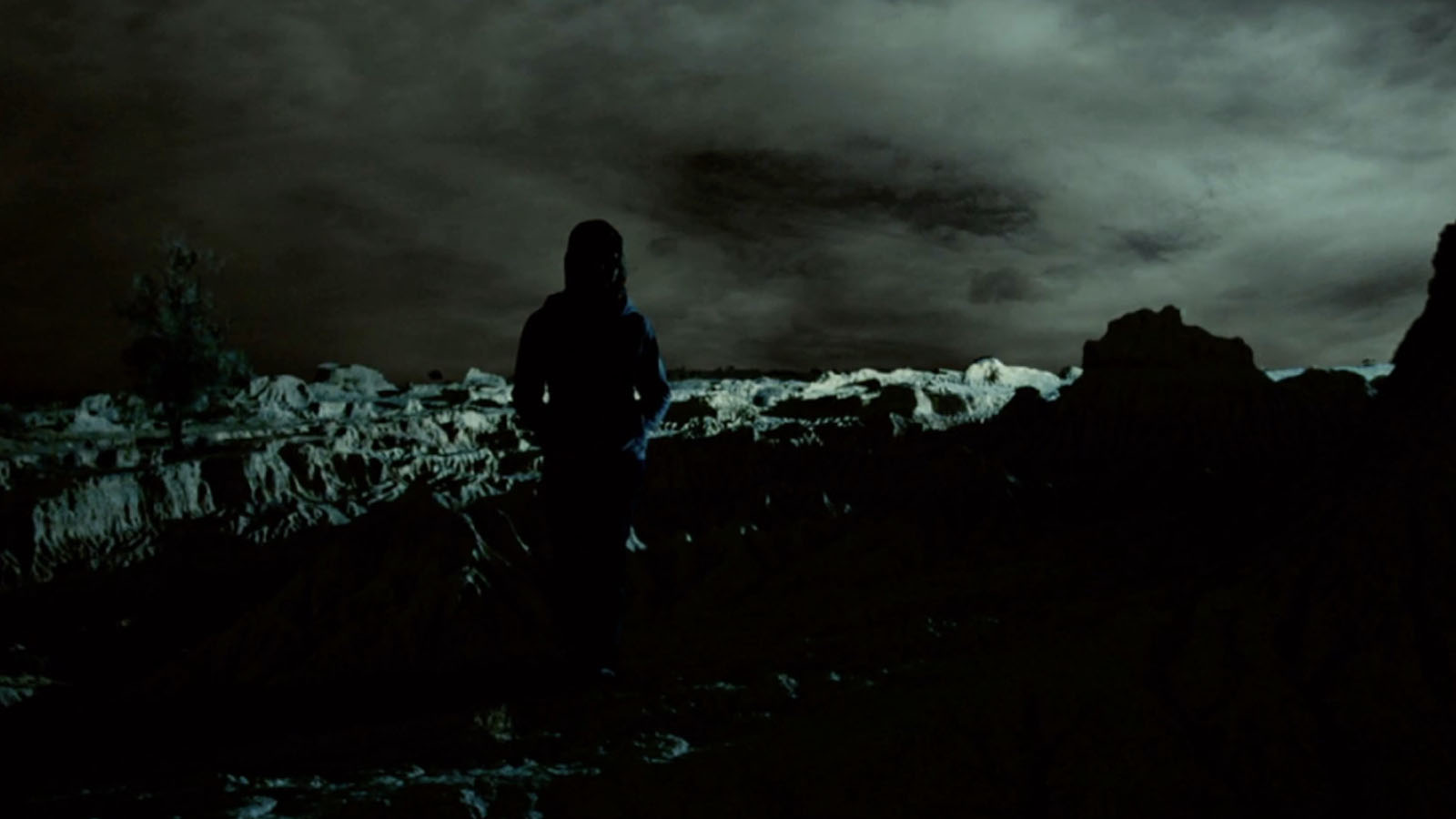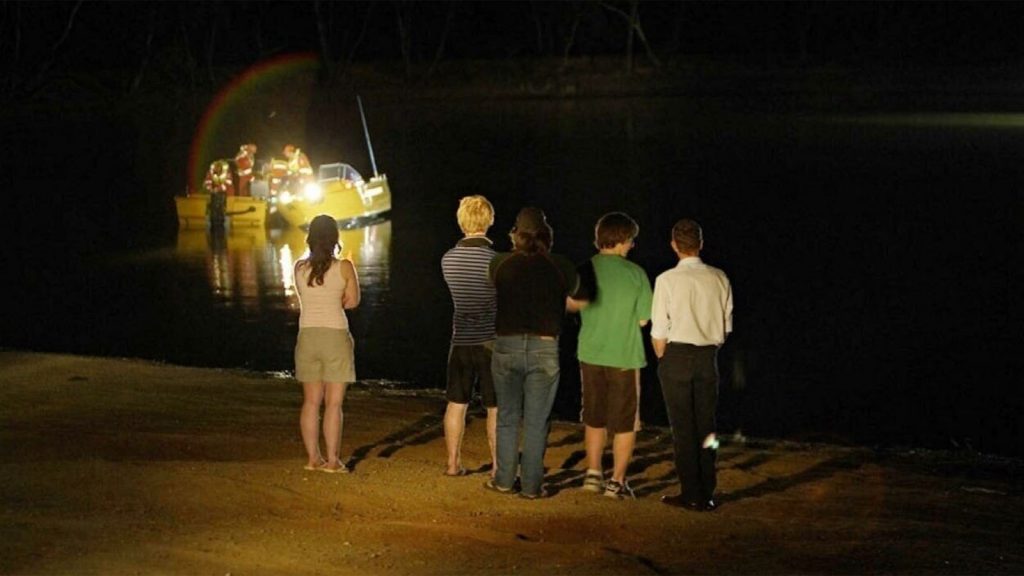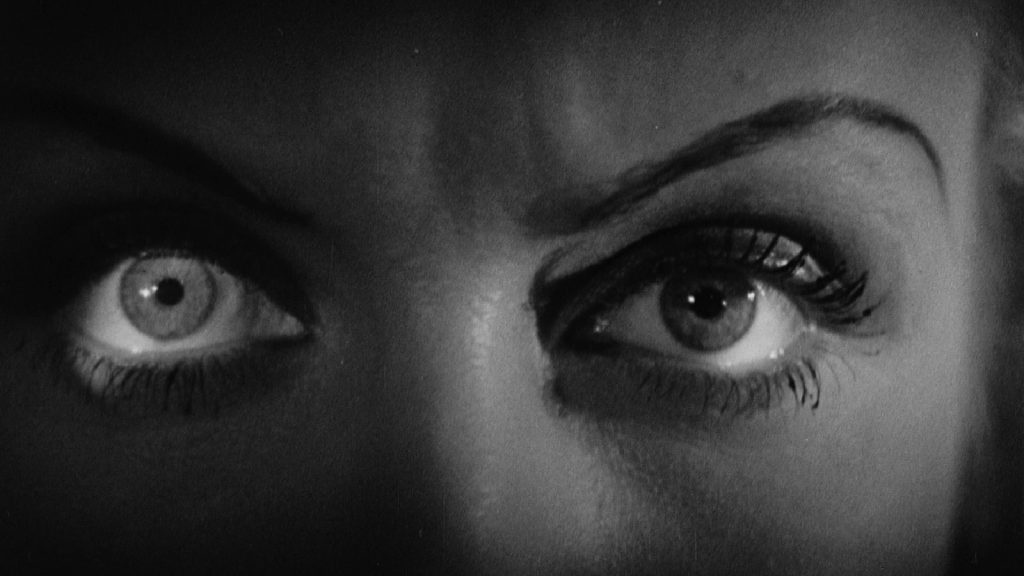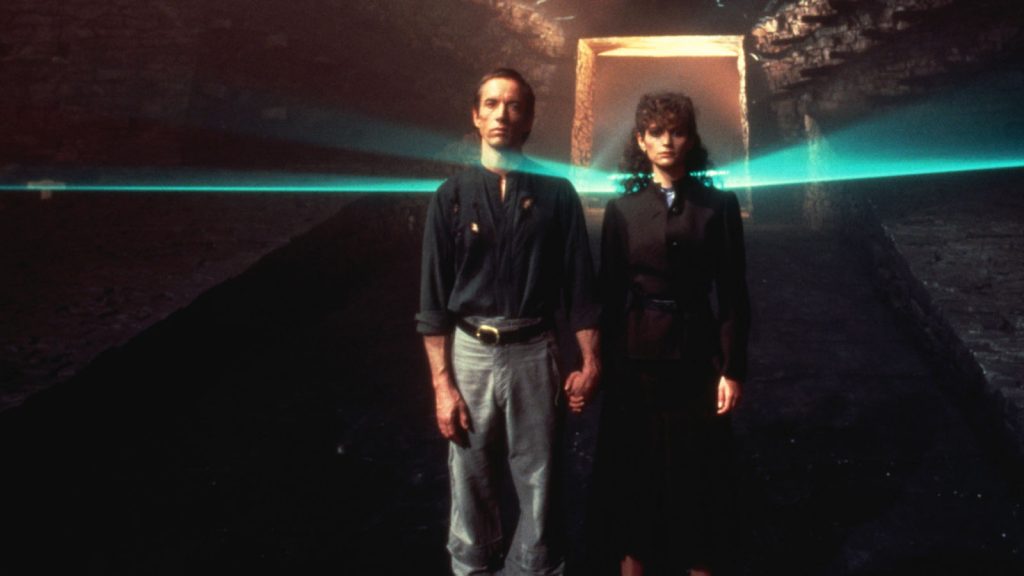
It’s both a mystery and a shame that Joel Anderson has directed only one feature, emerging out of nowhere to unleash a film that has slowly gained cult status, only to pretty much disappear from the movie world. A devastating depiction of familial grief and the burden of secrets, Lake Mungo is also a master class in faux-documentary filmmaking. There is a deep melancholy that permeates the proceedings, as the Palmer family struggles to come to terms with the drowning of 16-year-old Alice during a picnic near their home in small-town Australia. This death haunts each member in different ways. The mother, June, goes on long walks at night, sometimes entering neighbors’ houses, in order to avoid nightmares of Alice’s dripping corpse at the foot of her bed. The father, Russell, throws himself into work, trying to distance himself from the trauma. And the brother, Mathew, delves into photography. His images are what provide the initial narrative thrust of the film, when Alice seems to appear hazily at the edges of a photo. Desperate for any connection to Alice, the Palmers lean into this supernatural possibility, setting up video cameras around the house and even consulting with a local psychic.
Unlike the majority of found-footage films that bend over backwards to suspend disbelief about the camera operator’s ability to just keep on recording in the face of grave danger, Anderson’s movie takes a straight-doc approach, generating a verisimilitude that’s led many viewers to pose the question: “is Lake Mungo real?” And it’s no wonder: by placing actual police, reporters, and rescue personnel alongside convincing actors as the central family and their friends, the film blends reality and fiction so persuasively that if you stumbled across it while channel-scrolling (not that people really do this anymore), you might mistake it for fact.
A large part of this effect is due to Anderson and cinematographer John Brawley’s meticulous use of home movies, photographs, and newscasts that pull from an assortment of media sources, including VHS, 35mm film, and cell phones. These images feel real and lived-in, artifacts of a family looking for answers to fill the hole created by loss: the same ephemera that anyone dealing with sudden death would pore over. As evidence is introduced, deconstructed, and debunked, the film becomes about the Palmers’ need to believe in the supernatural to exorcise their grief, despite the growing realization that they perhaps never truly knew or understood Alice, a girl haunted by her own trauma—a trait she shares with Twin Peaks’s Laura Palmer, her referential namesake. The tension is slowly tightened, with each reveal unlocking more unanswerable questions, culminating in a terrifying and immensely sad nocturnal scene that takes place at the titular lake. It presents a final mystery from Alice that is eerie, impenetrable, and deeply personal—much like grief itself. 🩸

is the executive director of the Warner Theatre in Connecticut. He has programmed for Film at Lincoln Center (Scary Movies, My First Film Fest) and Subway Cinema (New York Asian Film Festival, Old School Kung Fu Fest). He recently co-edited an issue of NANG magazine focusing on archival imaginaries in Asian cinema. He has written extensively about Korean cinema, and holds an MA in Moving Image Archiving and Preservation from NYU.
Drawing inspiration from the special bleary-eyed ambiance of vintage witching-hour television, this found-footage curio...
BY JOSÉ TEODORO | March 22, 2024
When Noroi: The Curse was released in Japan in 2005, it quickly became a word-of-mouth must-see, deemed one of the scariest found-footage films ever made. Even so, it never received...
BY RUFUS DE RHAM | March 22, 2024
Seen from the vantage point of the present, any film with the barest hint of a quarantine narrative can only remind its audience of the COVID pandemic.
BY NICHOLAS RUSSELL | March 22, 2024

This pre-Code offering packs a lot of story into its typically brisk running time, with several plot threads weaving together a (not always successful) tapestry of spooky and criminal doings.
READ MORE >
BY ANN OLSSON | Month 00, 2021

In what could be the fastest-resulting rape revenge movie, a drunken lout brutally forces himself on Ida, the young woman who doesn't return his affections, during a party over Labor Day.
READ MORE >
BY LAURA KERN | Month 00, 2021

Beast is a lot of movies in one package - fractured fairy tale, belated-coming-of-age story, psychological drama, regional horror film - but above all it's a calling card for its leading lady, Jessie Buckley.
READ MORE >
BY LAURA KERN | Month 00, 2021